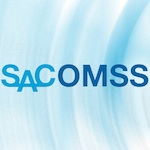The Sexual Assault Centre of the McGill Students' Society (SACOMSS) hosted McGill’s Sexual Assault Awareness Week, which consisted of a series of workshops, from March 16 to 20. The week included events such as the “Becoming an Active Bystander” workshop and “Fire with Water,” an art show depicting artistic responses to sexual violence. There were also two “Know Your Policy” workshops, which explained McGill’s current policy on sexual harassment as well as the Sexual Assault Policy proposal.
Vice-President University Affairs Claire Stewart-Kanigan, who has been liaising between the university administration and the Sexual Assault Policy working group, co-hosted the workshop. The working group has been developing a draft of a new policy on sexual assault since Fall 2013.
Stewart-Kanigan pointed out during the workshop that addressing sexual assault requires proactive measures, which the policy aims to introduce.
“People who have experienced sexual assault do not have a clear path to follow for seeking recourse or support at the university,” she said. “There are places you can go—you could bring your concern to the Dean of Students or you could speak to counselling. But in terms of having a clear path for people who have experienced sexual assault to both get information on what their options are and access channels that are sensitized to deal with their specific concerns and needs, [those] are not available on campus right now.”
Stewart-Kanigan added that she felt the current policies in place, including the harassment policy and the Code of Student Conduct, were not adequate to address the issue of sexual assault, as it doesn’t spell out the specific rights of the person who experiences sexual assault and the actions needed to address this issue.
“The Code of Student Conduct […] is the same code that would be applied if you got into a physical fight with someone or [if] you cheated on an exam,” she said. “The code is not appropriate as it does not spell out the specific rights of the person who experiences sexual assault and the actions needed to address this issue. Since sexual assault in its nature is extremely different from other violations covered under the Code of Student Conduct, the writers felt the need to formulate McGill's Sexual Assault Policy.”
The Sexual Assault Policy proposal acknowledges that sexual assault must be dealt with not only through punitive measures but also by creating a culture of consent on campus and a university-wide commitment.
“By taking a pro-active stance, the policy aims to outline not only how to respond, but also how to address sexual assault before it happens,” explained U1 Arts student and fellow workshop facilitator, Lucie Jane, who has been closely involved with the working group. “An effective example of a proactive action would be the recruitment of the Harm Reduction Liaison Officer, Bianca Tétrault, whose position entails organizing campaigns and educational workshops in order to make McGill a safer space.”
The policy has a pro-survivor approach allowing for self-definition, which would give survivors the freedom to define their experiences themselves and ensure consent at all stages of dealing with their experiences while maintaining complete confidentiality.
“Its non-directional approach not only ensures that resources and information are accessible to the person who has experienced sexual assault, but also allows them to take any course of action they may want to take,” said working group member and U2 student Rebecca Dales, who also helped to facilitate the workshop.
A concern regarding the policy in general has been whether it would undermine the criminal justice system and seek to replace it. Stewart-Kanigan asserted that this would not be the case.
“This policy is not intended to replace the criminal justice system; [rather] it is creating a localized option to access support, safety measures, and recourse within the immediate community,” she said.
So far, the policy has gained support from organizations like SACOMSS and the McGill branch of the Quebec Public Interest Research Group (QPIRG) which is a non-profit, student-run organization that works on environmental and social justice issues at McGill and in the Montreal community. It has also been endorsed by the Law Students’ Association, the Engineering Undergraduate Society, and the Arts Undergraduate Society.
“We are hoping to bring it to several other faculty associations in the next couple of weeks and are seeking to have it on the agenda for information in April and for approval by the Senate by the end of the academic year,” said Stewart-Kanigan.
U0 Management student Siddhi Kapadia, who attended the workshop, said that she was impressed by the clear and wide-ranging measures stated in the policy.
“It provides an option on campus for people who have experienced sexual assault for whom the criminal justice system is inaccessible,” she said. “Not only does this student-led initiative reflect the practical problems faced by people who have experienced sexual assault, but [it] also aims to build a preventative mechanism in order to make McGill a safer space for students.”









